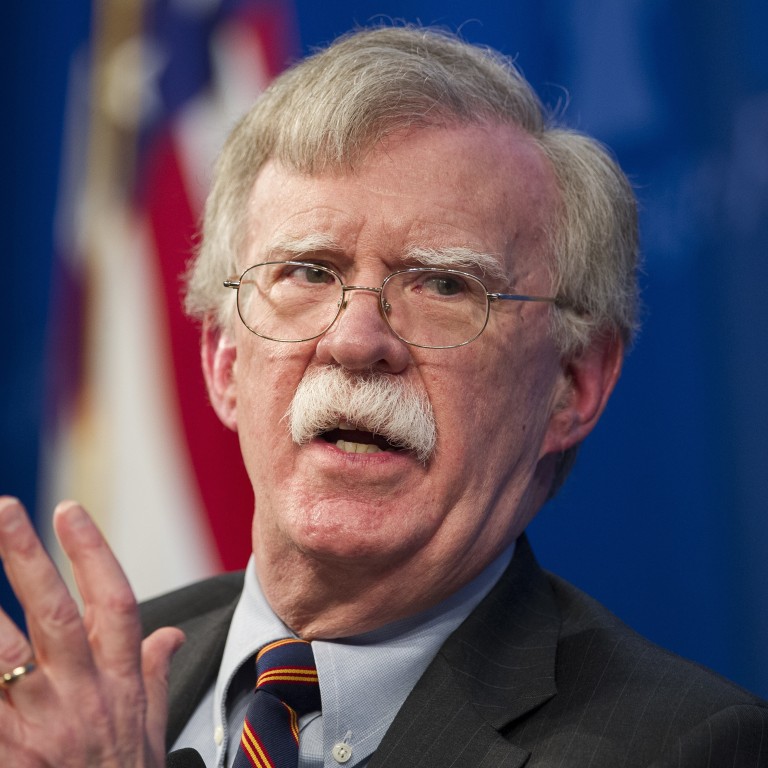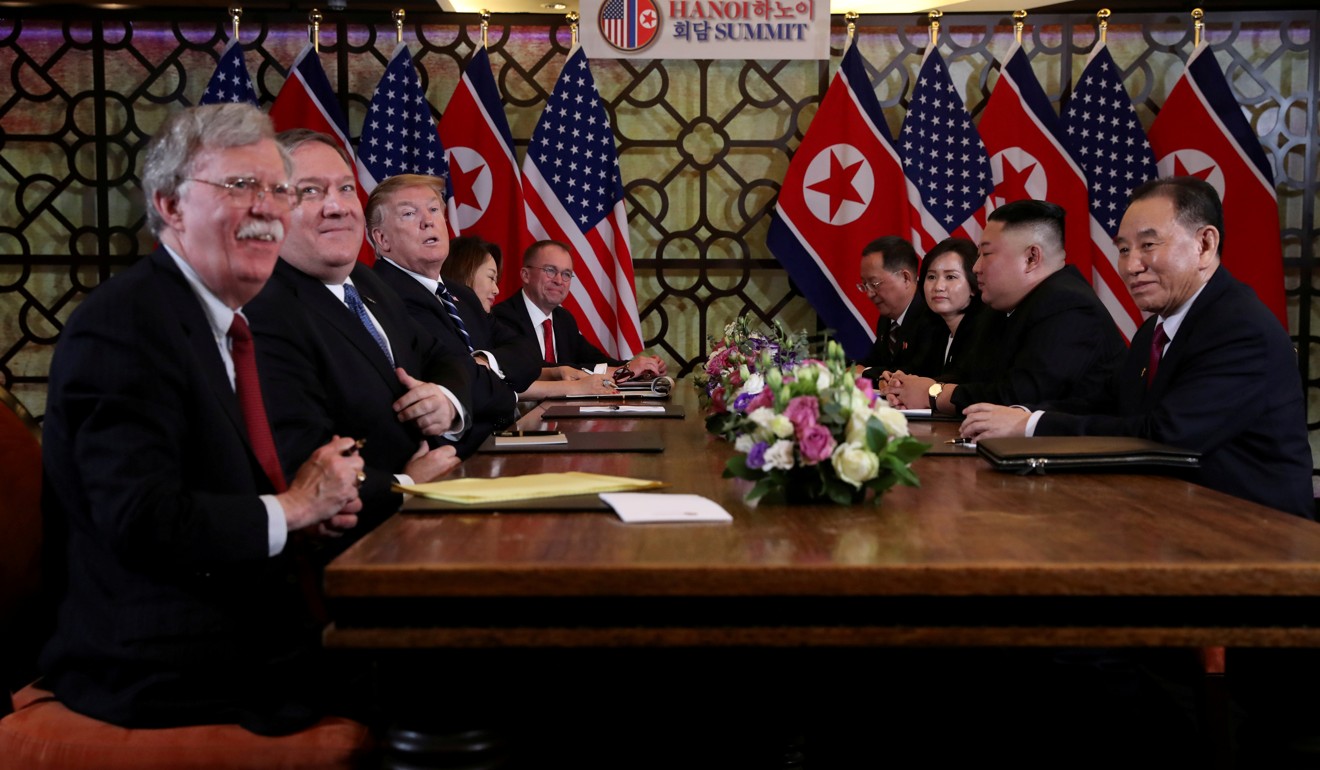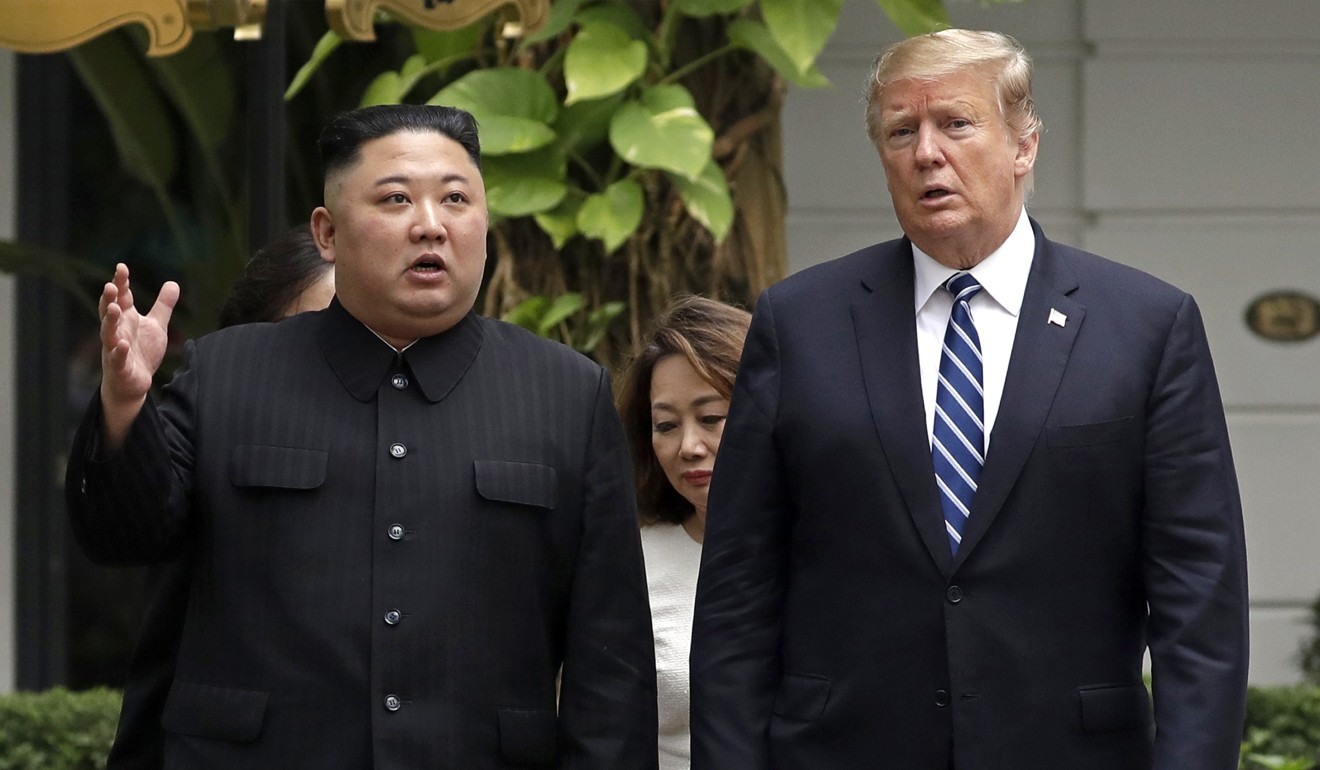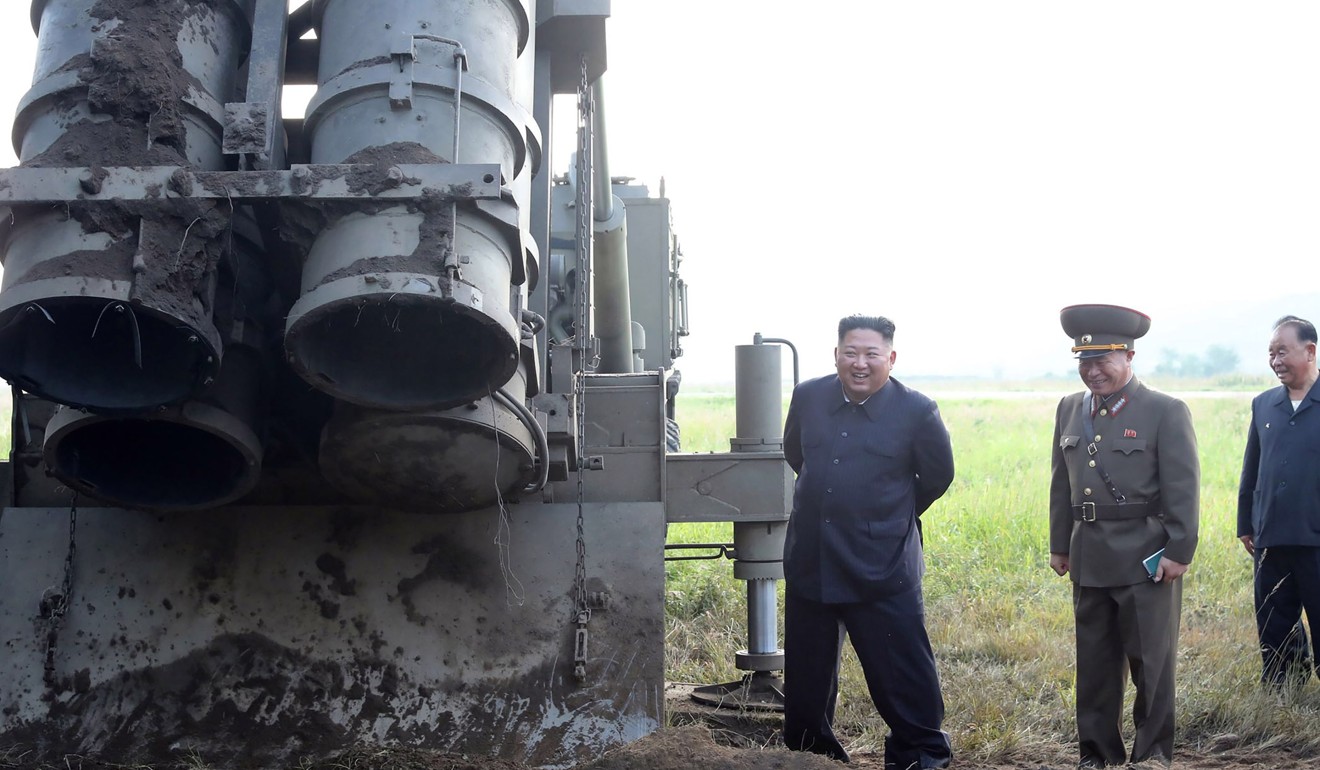
John Bolton’s exit ‘a win’ for North Korea in Trump-Kim denuclearisation talks, experts say
- US President Donald Trump fired his national security adviser John Bolton, who was once called ‘human scum’ by North Korean state media
- With the hardline Bolton out of the way, analysts believe North Korea could try to lure Trump into a more favourable denuclearisation deal

“Moreover, Bolton’s departure would be interpreted as a relief … but also an opportunity for Pyongyang to lure Trump into favourable agreements,” said Hinata-Yamaguchi.
Kim Jong-ha, a security expert at Hannam University in Daejeon, South Korea, said Bolton’s exit would give the North greater confidence of being able to extract concessions such as the signing of a peace treaty to bring a formal end to the Korean war, which Pyongyang has long demanded as a precursor to the removal of US troops from South Korea.
Kim Jong-un can spin this personnel change in Washington as a win in North Korean domestic politics
“Kim Jong-un is likely to expect the US policy on North Korea to be somewhat eased by the replacement of Bolton,” Kim said.
“Kim Jong-un can spin this personnel change in Washington as a win in North Korean domestic politics. That would increase the likelihood of denuclearisation talks restarting soon.”
Daniel Pinkston, a former Korean linguist with the US Air Force who now lectures at Troy University in Seoul, said the North Koreans would feel better able to appeal directly to Trump’s deal-making instincts and distrust of the traditional foreign policy establishment.
“They’ve always wanted to deal with Trump one-on-one,” Pinkston said.
Srinivasan Sitaraman, North Korea expert and Clark University professor, pointed out: “Now that Bolton is out of the way and as the UN General Assembly gets underway next week in New York, there is no one to stop Mr Trump from making a deal with North Korea.”

Speaking after Bolton’s exit, US Secretary of State Mike Pompeo played down the likelihood of a shift in foreign policy, cautioning foreign leaders against any “assumption” about such changes.
Soo Kim, a former Korea analyst with the CIA, said Bolton’s departure did not necessarily indicate there would be a sharp shift in policy. “I just don’t see the administration suddenly shifting from the current approach to sanctions relaxation,” she said.

The overture came on the heels of repeated short-range missile launches by Pyongyang since June – although the North followed its outreach with the launch of two more projectiles into the sea just hours later.
Trump told media the summit collapsed after the North Korean side demanded a complete lifting of sanctions, while North Korean officials insisted they had only sought partial sanctions relief.
Trump and Kim agreed to return to working-level talks during a brief third meeting in June, but negotiations have yet to get off the ground.
“The North appears to prefer a step-by-step approach,” said Lim. “If North Korea-US talks restart, the North may want to know specific concessions that the US can provide in a gradual denuclearisation process.”
Additional reporting by Lee Jeong-ho

